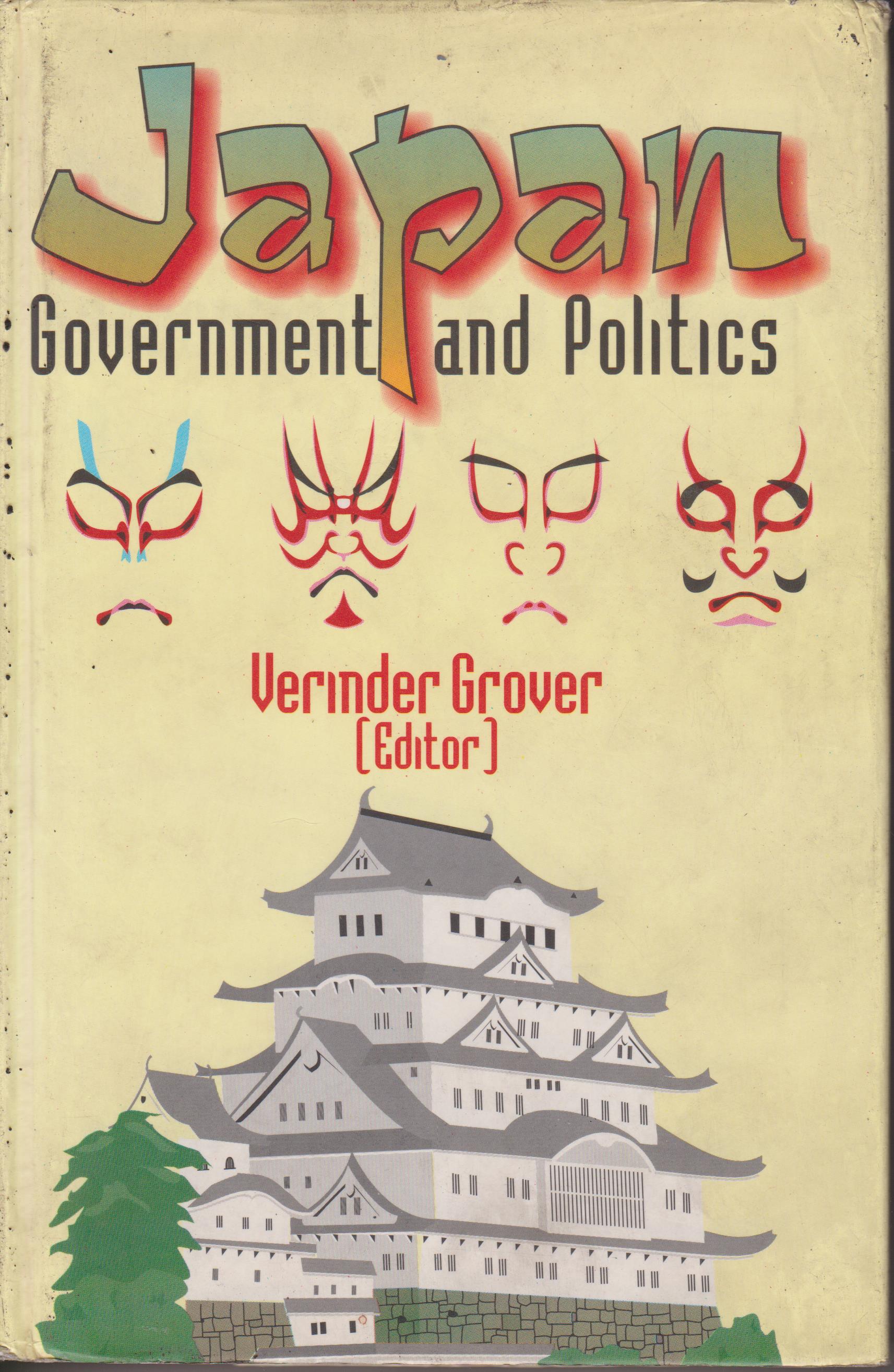-
×
 Gender Justice: A Reality or Fragile Myth?
1 × ₹944
Gender Justice: A Reality or Fragile Myth?
1 × ₹944 -
×
 Consumer Protection Law: Provisions and Procedure
1 × ₹1,505
Consumer Protection Law: Provisions and Procedure
1 × ₹1,505
Subtotal: ₹2,449
Original price was: ₹1,300.₹1,039Current price is: ₹1,039.
“Japan: Government and Politics” by Verinder Grover is an indispensable resource for anyone seeking a deep understanding of Japanese politics. Through his meticulous research, balanced approach, and accessible writing style, Grover provides readers with a comprehensive analysis of Japan’s government and political institutions. This book is highly recommended for scholars, students, and individuals interested in gaining insights into the complexities of Japan’s political landscape.
5 in stock
“Japan: Government and Politics” by Verinder Grover is a comprehensive and insightful exploration of the political landscape and governance structures in Japan. This book delves into the historical context, constitutional framework, and various political institutions that have shaped Japan’s government and politics. With meticulous research and a balanced approach, Grover provides readers with a detailed analysis of Japan’s political system and its evolution over time. This review aims to evaluate the book’s strengths, weaknesses, and overall contribution to the understanding of Japanese politics.
In the opening chapters, Grover provides a concise yet informative overview of Japan’s historical and cultural background, tracing the roots of its political system. The author explores the significant influence of Confucianism, the Meiji Restoration, and the post-World War II period on Japan’s political landscape. He highlights the key milestones and transformative events that have shaped the country’s governance structure.
Moving forward, Grover delves into the constitutional framework of Japan, examining the role of the Emperor, the Diet, and the judicial system. He analyzes the relationship between political parties and interest groups, shedding light on the complex interplay between these entities in shaping Japan’s policies and decision-making processes. The author also comprehensively analyses the bureaucratic system, its strengths, and its challenges.
Grover’s book stands out for its meticulous analysis and objective evaluation of Japan’s government and politics. He adeptly navigates the complexities of the subject matter, presenting a clear and comprehensive picture of the political landscape. The author’s extensive research and in-depth understanding of Japanese politics are evident throughout the book.
One of the book’s strengths lies in its nuanced exploration of the role of political parties and interest groups in Japan. Grover goes beyond surface-level analysis and delves into the intricate dynamics and influence these entities exert on policy formulation and implementation. This provides readers with a deeper understanding of the political mechanisms at play in Japan.
Additionally, the author’s exploration of Japan’s bureaucratic system is highly informative. Grover outlines the structure, functions, and challenges of the bureaucracy, shedding light on its influence on policy-making. By presenting a balanced view, he highlights both the strengths and weaknesses of the bureaucracy, allowing readers to form their judgments.
When comparing “Japan: Government and Politics” to other books on the subject, Grover’s work distinguishes itself by striking a balance between depth and accessibility. While some scholarly texts can be overly dense and academic, Grover presents the information in a manner that is easily digestible for readers with varying levels of familiarity with Japanese politics.
Moreover, Grover’s book stands out for its contemporary analysis of Japan’s political landscape. By examining recent developments and key political events, he provides readers with an up-to-date understanding of the subject matter. This makes the book highly relevant for scholars, students, and anyone interested in gaining insights into Japan’s evolving political dynamics.
Throughout the book, Grover skillfully explores several key themes that underpin Japan’s government and politics. One prominent theme is the tension between tradition and modernity. He highlights how Japan’s political system has evolved while still preserving certain traditional elements, such as the role of the Emperor and the influence of Confucian principles.
Another central theme is the interplay between democracy and bureaucracy. Grover delves into the challenges posed by the bureaucratic system and its potential impact on democratic decision-making processes. He raises important questions about the balance of power and accountability in Japan’s governance structure.
“Japan: Government and Politics ” focuses primarily on the political institutions, rather than individual characters. Grover analyzes the roles and functions of various actors within Japan’s political system, including the Emperor, politicians, and bureaucrats. While the book does not delve deeply into personal anecdotes or individual narratives, it offers a comprehensive understanding of the roles these actors play within the larger political context.
Verinder Grover is a highly regarded scholar specializing in Japanese politics and governance. He has published extensively on the subject and is known for his in-depth research and nuanced analysis. With years of experience in academia, Grover brings his expertise to bear in “Japan: Government and Politics,” providing readers with a well-researched and authoritative exploration of the topic.
Grover’s writing style is engaging and accessible, making complex concepts and political processes understandable to readers. He presents information logically and organised, guiding readers through Japan’s political landscape with clarity. The author’s ability to distil complex ideas into comprehensible prose makes the book accessible to both experts and those new to the subject.
“Japan: Government and Politics” has garnered praise for its comprehensive analysis, scholarly rigour, and accessible writing style. Scholars and students alike have lauded the book for its ability to provide a thorough understanding of Japan’s political system without sacrificing readability. Readers appreciate Grover’s balanced approach, as he presents various perspectives while offering his insights.

Reviews
There are no reviews yet.